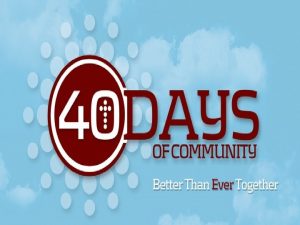Altruism selfishness and cooperation on the valuation of

- Slides: 1

Altruism, selfishness and cooperation on the valuation of coffee quality attributes Katherine Ramirez* - Carola Grebitus Morrison School of Agribusiness - W. P. Carey School of Business - Arizona State University Introduction More than 25 million coffee smallholders depend on coffee for their livelihoods. Coffee farmers are deciding to adopt new sustainable technologies to their plantations to increase their profits, such as Fair Trade, Rainforest Alliance and organic labels. In order for these farmers to keep on following sustainable standards they depend on consumers in developed countries to buy coffee with sustainable levels. How are consumers deriving utility when buying coffee? How much are consumers willing to pay extra for sustainable coffee? Search Experience Credence Attributes Brand Packing Aroma Taste Quality Sustainability Standards Social, Ethical, Environmental Background Consumers of ethical food and drinks have increased around the world. The propensity to buy socially responsible brands around the world are from 40% in Europe to 64% in Asia-Pacific 3. In the U. S. consumers are more aware of the meaning of sustainable labels. 41% more in 2011 than in 20054. However only 16% of the global coffee production and 9% of global coffee sales in 2010 were certified under a sustainability standard 5. Where are the efforts going on? Mainly, to coffee producers (many studies have focused on the benefits of producers joining sustainable practices) and consumer awareness. Consumer awareness begins by understanding consumers motives and behavior that lead them to buy sustainable coffee. Research Objective Methodology People exhibit social preferences that are against the self -interest assumption in economics 1 – Altruism and warm -glow are behaviors often seen in human interactions. There are different kinds of social motives when analyzing coffee choices: Altruistic – Warm-glow giving (sense of joy and satisfaction experienced by doing something good to others- it can be to avoid scorn or to receive social acclamation)1 Selfish – Free riders Cooperators – Conditional on other’s contributions 2. Coffee has several characteristics that makes it a private good with public good characteristics (social, environmental and health benefits). Where and how to direct efforts to the specific niche of consumers to increase the impact of sustainability driven farmers? We need first to identify the motives that drive consumers to pay extra for sustainable coffee. Laboratory experiment: 250 participants – I’m collecting socio demographic data such as: Age, income, nationality, food habits, sex, household size 3 Phases: I. Psychometric Scales – Identifying altruistic, warm glow and selfishness behaviors (25 questions) e. g. : “Have you done volunteer work for a charity or environmental organization? ”, “Have you donated blood? ” II. Public Good Game – Identifying cooperation and fairness behavior. In groups of 3 players identify who donates with no feedback, with positive feedback or negative feedback. e. g: “You have 4 tokens, the second player has 0 and the third player has 1. You can decide to divide all the tokens the way you want or keep them all”. With positive feedback: “Player 2 donates 3 and player 3 donates all his endowment, how much do you want to donate? ” III. Auctions (Willingness to pay) – Experimental design with 5 alternatives of sustainable labels. Round 1 – No information on the labels. Round 2 - Description of all the labels. Round 2 Round 1 Expected Results Given the characteristics of coffee as a private good with public good characteristics, I’m expecting to see that altruistic and warm glow driven consumers will pay more for sustainable labels regarding social justice, such as the Fair Trade label. More “selfish” consumers would pay attention more to the personal benefits such as less use of fertilizers most common in the “organic certified” label. The Rainforest label’s main objective is to improve sustainable livelihood through conservation of biodiversity and transformation of land-use practices- I’m expecting that consumer’s will behave in a cooperative manner, where increase of other’s contributions increase their own contributions. References 1. 2. 3. 4. 5. 6. Fischbacher U. , Simon Gachter and Ernst Fehr (2001) “Are people conditionally cooperative? Evidence from a Public Good Experiment” Economics Letters 71(3): 397 -404. Andreoni, James (1990) “Impure Altruism and Donations to Public Goods: A Theory of Warm-Glow Giving” The Economic Journal 100(401): 464 -477. Fischbacher U. , Simon Gachter and Ernst Fehr (2001) “Are people conditionally cooperative? Evidence from a Public Good Experiment” Economics Letters 71(3): 397 -404. Global consumers are willing to put their money where their heart is when it comes to goods and services from companies committed to social responsibility – Nielsen 2014. Haight, Colleen (2011) “The problem with Fair Trade Coffee” Stanford Social Innovation Review. Tropical Commodity Coalition, Coffee Barometer, 2012

